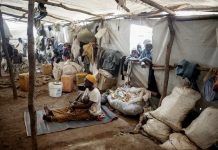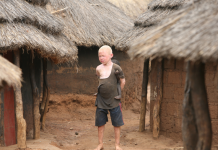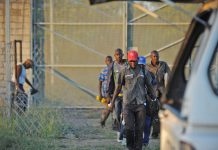Juba - Humanitarian Coordinator ad interim (a.i.) for South Sudan, Serge Tissot, called for an immediate end to attacks against civilians and aid workers as conflict continues in South Sudan.
“We continue to witness increasing, deliberate and unprovoked attacks against civilians and aid workers in South Sudan. This should not be accepted as the norm,” said Mr. Tissot. “We urge the public make an overarching call to action: Civilians and Aid workers are #NotATarget.”
South Sudan continues to be one of the most dangerous places for aid workers. Since the conflict began in December 2013, at least 82 aid workers, have been killed, including 15 in 2017. Most of them are South Sudanese. More are missing or in detention. Aid workers are routinely subjected to harassment and intimidation with impunity for the perpetrators.
Humanitarian efforts continue to be met with increasing access denials. Nearly 630 humanitarian access incidents have been reported since January including attacks on humanitarian compounds, looting aid supplies and convoys across the country. Since January, 27 security-related incidents have forced the relocation of some 300 aid workers. These incidents signify a total lack of respect and a worsening operating environment for humanitarians in South Sudan.
In July alone, 15 incidents of looting were reported across the country. Of particular concern were the six major incidents in which warehouses and trucks in transit were looted, leading to the loss of 670 metric tons of food aid in Eastern Equatoria, Lakes, Upper Nile and Warrap. Whereas we saw more organized and large scale looting in 2016, incidents reported in 2017 are much smaller in value, mainly driven by the ongoing economic crisis.
“When aid workers are endangered or under attack, millions of vulnerable people, who need food, health services, access to clean water, nutrition and education services, are deprived of the much needed help,” said Mr. Tissot.
In 2017, humanitarian needs have continued to grow as a result of continued fighting, intercommunal violence, displacement, hunger and disease. The country is currently facing unprecedented levels of food insecurity, as nearly million people–about 50 percent of the country’s population–are hungry. Nearly 4million people—about one in three people—have been uprooted, including 1.9 million who are internally displaced and 1.97 million who are refugees in neighbouring countries. Civilians continue to be killed and subjected to horrendous violations, including sexual violence.
“For us to stay and continue this selfless service to the people of South Sudan, we call upon all armed actors to stop targeting aid workers and civilians and to do everything possible to safeguard them,” said Mr. Tissot. “Better still, we call for the guns to fall silent.”







